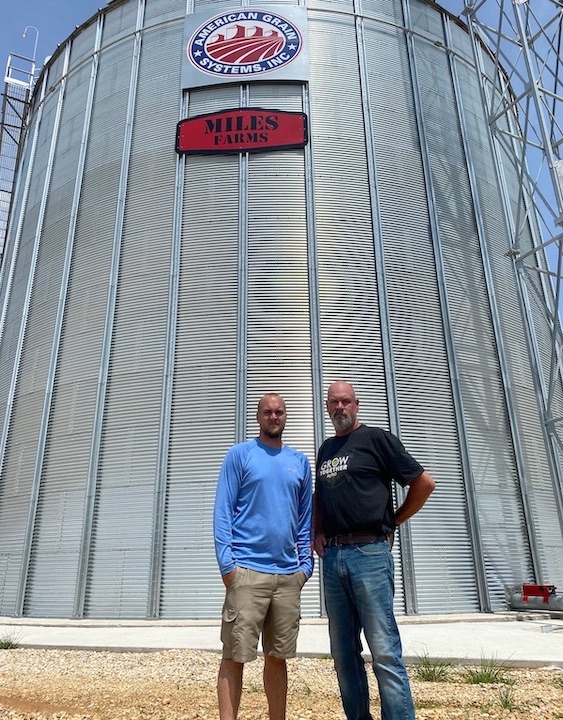Sweet Corn is Life and Legacy on Arkansas Farm
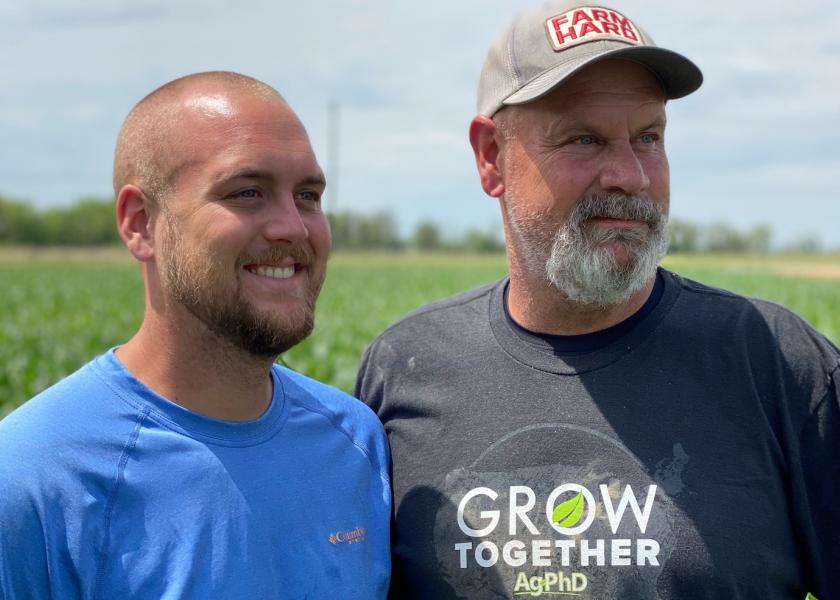
Deep in the pocket of southeast Arkansas, generosity is infectious. At Miles Farms, bitter has blossomed sweet. Linked from father to son to brother to grandson, a chain of thanksgiving has grown stronger with time, rooted in an annual sweet corn field and nearly 1 million ears given to the public.
“As farmers, and I’m as guilty as anyone, we spend so much time chasing dollars to keep our operations going, and sometimes we forget the little things outside our fields,” Matt Miles says. “It doesn’t matter how many big things like money, bushels, or land you get—if you forget the small things you’ll never be happy. Never.”
“Daily living is about building relationships and our little sweet corn field is just one part of how I see life,” he adds. “And to think it all started so small.”
Bull’s-eye. It began with a farmer reborn on 60 acres.
Field of Screams
In 1974, Charles Miles paid the cost of personal choices. He packed a few belongings, gathered his family—including 6-year-old son, Matt—and left behind a farm life in the Delta flats of Desha County for the mountains of north Arkansas, where he bought two semis and transported cattle across the U.S. for six years. In reality, he hauled loads of regret.
The six-year upheaval became Charles’ road to Damascus. “My daddy genuinely changed,” Matt says. “He got his life straight with the Lord, put his priorities in order, and became my hero. He became a man focused on giving thanks.”
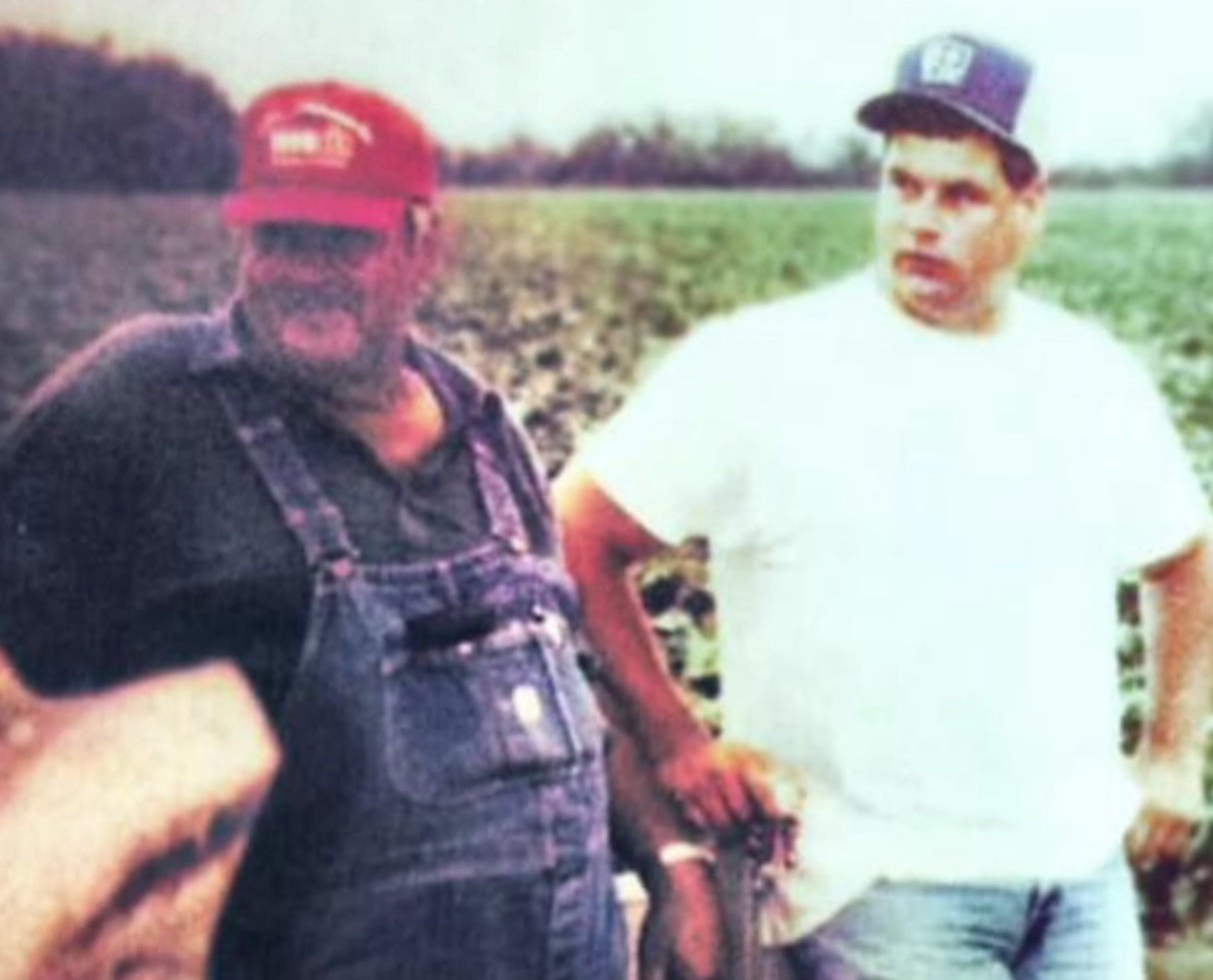
In 1980, Charles moved back to the Arkansas Delta, once again to the tiny town of McGehee, and found work with a Desha County grower at $183 per week. It was a shoestring lifeline—but Charles grabbed the offer, grateful for another chance in the rows. In addition to a $183 paycheck, he had run of 60 dryland acres, squeezed into the shape of a pie piece.
Charles planted the acreage to cotton—except in an extremity where the rows ran short. Instead of cotton in the corner, he grew 1 acre of sweet corn and 1 acre of peas.
The sweet corn and peas were a thorn in the flesh of young Matt, 12 years old at the time, but ironically, the annual food crop dramatically molded Matt’s life in two ways. “We had no water, but the farmer next to us, Joe Snow, had a well, and he gave my daddy access. Back then, I didn’t even know Joe Snow’s daughter, Sherrie, but I’d go on to marry her and she’s the love of my life. That sweet corn and peas is also where my daddy taught truth to a selfish teenager—me.”
Generated from 2 acres, Charles provided food to his community. “He’d start at the FSA office, or bank, or retailers, and keep going to anyone in the public that wanted the crop,” Matt recalls. “He gave 100% of the yield away, and he was giving what he really couldn’t afford.”
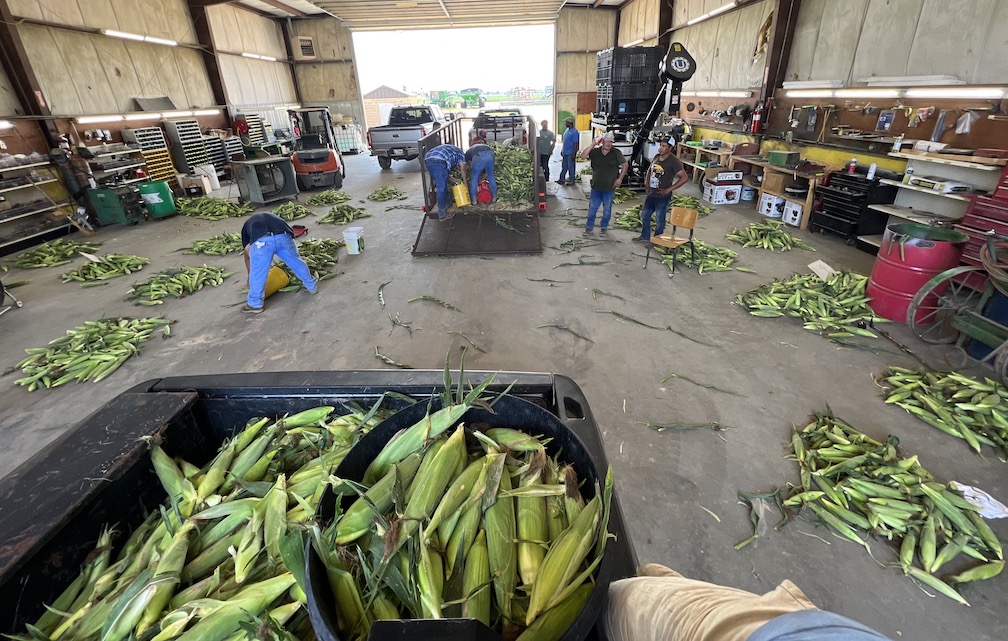
As a farm boy interested exclusively in self, Matt increasingly detested the oddly shaped 60-acre field where he toted endless water pipes across the rows, slipping in mud and wilting in heat. “On rainy days or half days or days off when we couldn’t work anywhere else or didn’t have to, daddy would take us straight to the field and put us to work irrigating or picking peas or pulling sweet corn. I’d complain and grumble because I couldn’t see past myself.”
“I understood hard work and I wasn’t afraid of hard work. But at the time, I believed hard work was supposed to benefit me—only me. My daddy showed me otherwise.”
Pennies on the Dollar
In 1986, a cargo truck flipped on US-65 in Desha County, spilling a trailer filled with thousands of Wells Lamont leather work gloves onto the highway. Charles bought the entire load of gloves for pennies on the dollar.
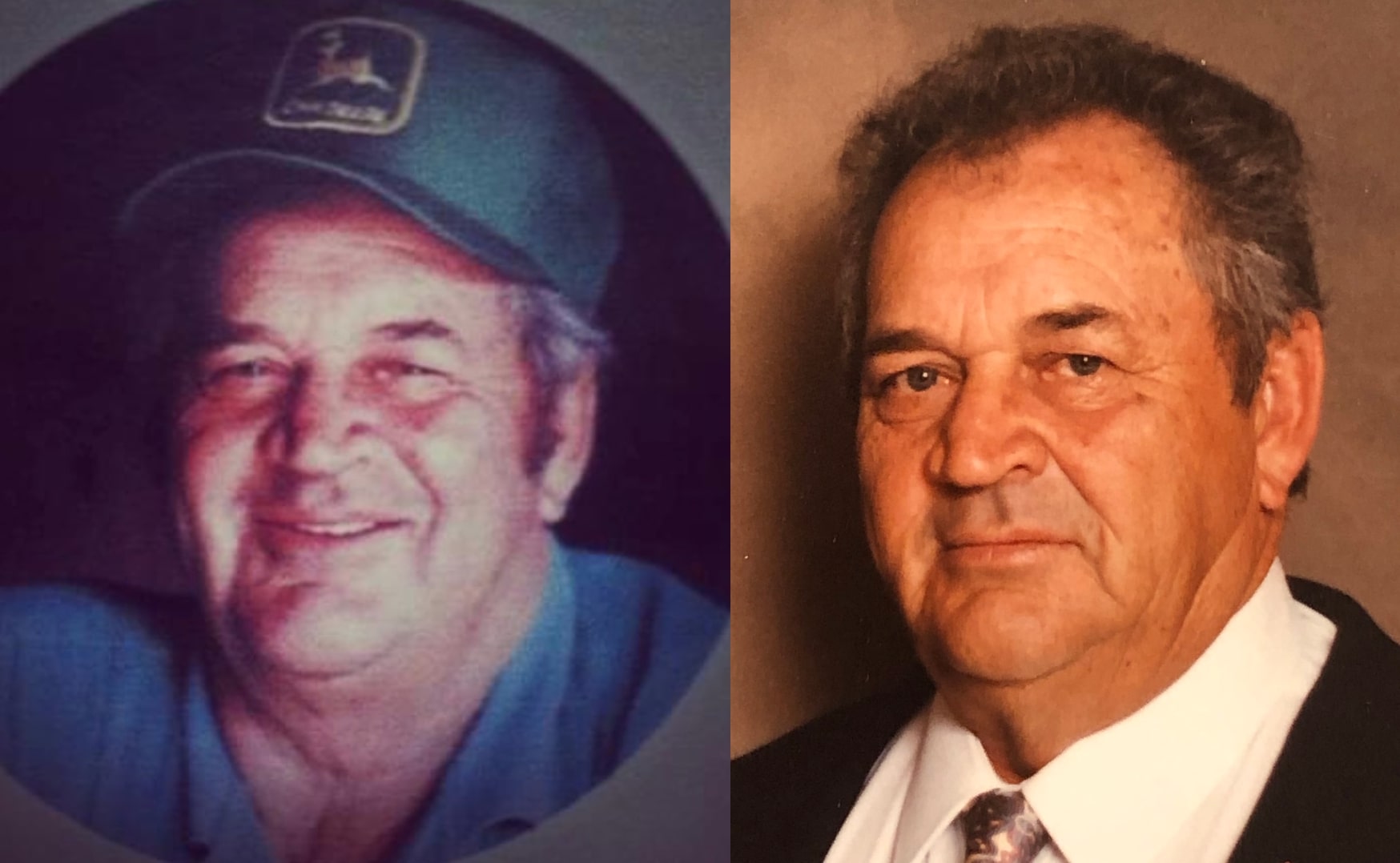
Juiced over his father’s purchase and ready to feel the fabric of crisp dollars, Matt, 18, did the easy math. Bought for only a few cents each, the gloves could be sold for major profit. Matt saw green and gold.
“We’ve got thousands, Daddy,” Matt declared. “At a dollar or so a pair, we can turn some good money.”
Charles looked Matt in the eye, paused, and spoke plainly. “I didn’t buy those gloves to sell, son. I brought them to give to men that work. Give. Not sell. We’ve got an opportunity to help somebody.”
In the moment, Matt saw disappearing dollars. Thirty-seven years later, he sees the glove incident as one the defining moments of learning in his life.
“True to his word, my daddy gave all the gloves away. I got older and I understood what was driving him—and it wasn’t money,” Matt says. “Helping someone, building relationships, and doing right before the Lord were what motivated him. That’s exactly where the mindset for our sweet corn comes from today.”
The Shared Heart
In 2000, Charles succumbed to lung cancer—still growing sweet corn for the public in his final days.
By the time of his passing, sweet corn was established as constitutional at Miles Farms. During early summer harvest, the operation turned into a sweet corn factory. Beyond deliveries to the public, the entire farm crew cut off ends, shucked, blanched, dropped the corn into iced kiddy pools.
The sweet corn reins passed from Charles to Matt, but the true driver became Billy Garner. Farm manager and best friend to Matt, Billy was sweet corn-obsessive, with a spirit to match Charles.
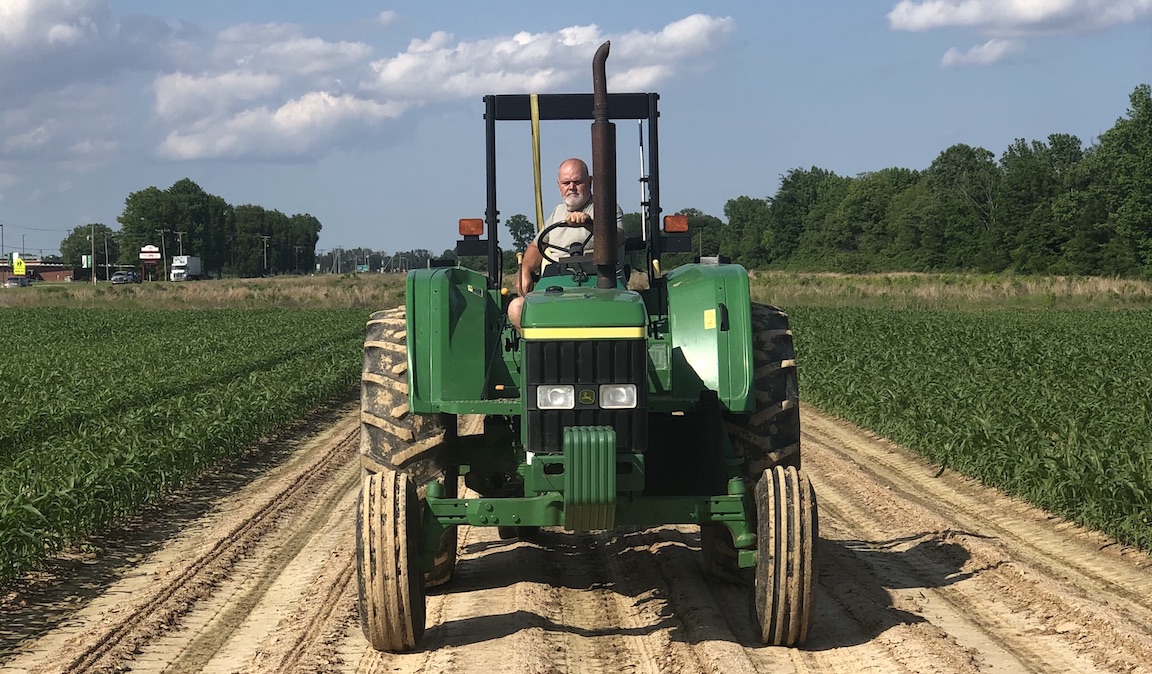
Year over year, Billy divided sweet corn responsibility with Matt, ensuring the food was distributed to farm employees, food pantries, and all points in between. “Billy spearheaded the whole thing,” Matt says. “He’d spend so much time checking on the sweet corn rows, and I’d tell him, ‘Billy, we’ve got $1,500 in this already and we need to spend time on other parts of the farm.’”
“But he wouldn’t hear of it,” Matt says. “He’d keep tending the sweet corn and say, ‘This is what matters. This is part of our life and it’s what we do.’”
The pair of farming brothers, although separated by blood and DNA, shared a heart. Across 25 years on the farm, they typically spent 25 days a month together—at work, hunting, or through family time.
In 2019, Billy was killed in an ATV accident.
Matt was inconsolable. “Billy was as fine a person as I’ve ever known and his death was indescribable. I was ready to check out of this world. I was done. I made it through because I was picked up by my crew, my son, my wife, and foremost, God.”
With Charles and Billy gone, Matt’s son, Layne, stepped to the fore: “I got this, Dad. I’ll take the lead from now on.”
Takers and Givers
In 2023, Miles Farms once again pulled 20,000-plus ears off the 1-acre sweet corn patch. On July 1, the operation shut down for sweet corn pulling, processing, and delivery.
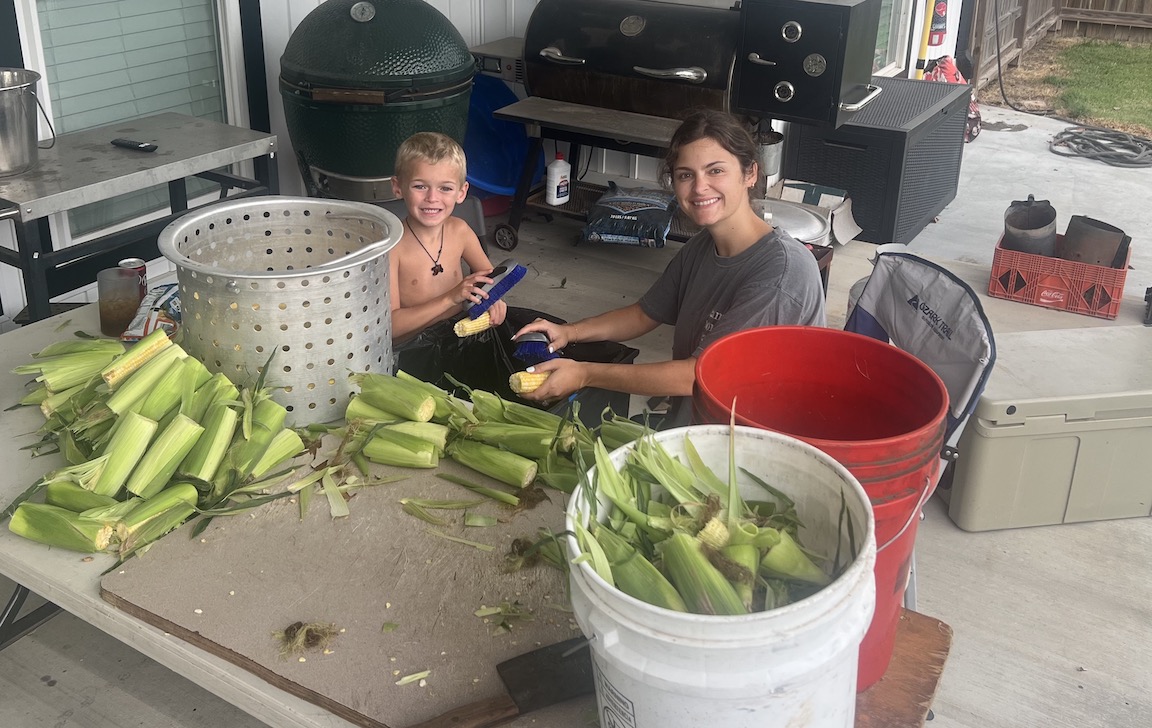
“It’s a day that where a feeling of giving spreads to everyone on our farm and then to the community,” Matt explains. “We do everything together, load 1,000 ears into a bunch of pickups, and away they go across town as simple thanks from us.”
At 54, Matt’s march into middle age, colored by the loss of his father and best friend, has steered him toward the essentials of life. “I was once a young farmer burning a candle at both ends that thought only of myself. If there was no immediate profit for me, then I wasn’t interested.”
“But a man gets older and realizes relationships, on the farm and beyond, are what is most important. I emphasize to my son, Layne: ‘Build the correct relationships in the right way and the money will follow if it’s God’s will. Sometimes the money won’t follow, but you still have the relationship.’”
“My time on earth will end one day, just like for my daddy and Billy, and no one in the room at my funeral will care how much money I did or didn’t make, or if my beans were great, or how much land I farmed,” Matt continues. “But the people at my funeral will care about our relationships and whether they trusted me as a man who behaved honorably or treated others right.”
Anyone can be a taker. Few are givers.
“Sweet corn started with my daddy, and moved to me, and moved to Billy, and now it’s with Layne,” Matt adds. “Looking back, I understand it was never about sweet corn. It was about how we see life.”
For more from Chris Bennett (cbennett@farmjournal.com 662-592-1106) see:
Priceless Pistol Found After Decades Lost in Farmhouse Attic
Cottonmouth Farmer: The Insane Tale of a Buck-Wild Scheme to Corner the Snake Venom Market
Tractorcade: How an Epic Convoy and Legendary Farmer Army Shook Washington, D.C.
Bagging the Tomato King: The Insane Hunt for Agriculture’s Wildest Con Man
Young Farmer uses YouTube and Video Games to Buy $1.8M Land
While America Slept, China Stole the Farm
Bizarre Mystery of Mummified Coon Dog Solved After 40 Years
The Arrowhead whisperer: Stunning Indian Artifact Collection Found on Farmland
Fleecing the Farm: How a Fake Crop Fueled a Bizarre $25 Million Ag Scam
Skeleton In the Walls: Mysterious Arkansas Farmhouse Hides Civil War History
US Farming Loses the King of Combines
Ghost in the House: A Forgotten American Farming Tragedy
Rat Hunting with the Dogs of War, Farming's Greatest Show on Legs
Evil Grain: The Wild Tale of History’s Biggest Crop Insurance Scam


